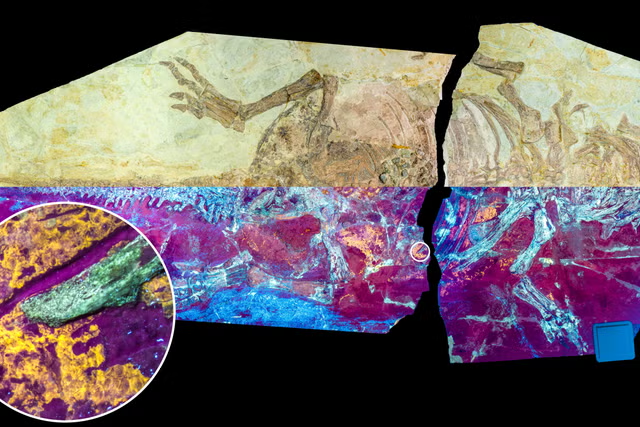An "alarming" invasive insect has been found across further areas of Texas, infesting and killing trees.
The invasive emerald ash borer (EAB) has been detected in Grayson, Hill, Hood, McLennan and Palo Pinto Counties, the Texas A&M Forest Service reported in a statement.
The beetles are green in color and native to northeast Asia. They were first detected in North America in 2002 and have since established themselves in Michigan, Ontario in Canada, Indiana, Ohio, Maryland, and Virginia. And now they are spreading further through Texas. It is believed that back in 2002, they made their way from China through the wood of shipping crates.
As a boring wood beetle, it lays its eggs in the bark of ash trees. When these eggs hatch, they embed into the tree and feed on it.
As a result these ash trees die. According to the Animal and Plant Health Inspection Service, they are causing the death and health decline of tens of millions of ash treesacross the U.S.
This is a concern as ash trees are highly important to North America's ecosystem. They provide food and habitat for wildlife, and are a vital feature for hardwood forests in the north. Once the EAB has infested the tree, it usually dies within two to five years.
"The spread of EAB to these counties is alarming," Allen Smith, a Texas A&M Forest Service regional forest health coordinator said in a statement. "It's more likely for EAB to spread to adjacent counties, but the spread to McLennan County indicates that EAB is being spread by humans, which can be prevented."
The beetles were found after officials discovered adult specimens across each of the five counties earlier in May. Following collection, they were sent to the U. S. Department of Agriculture's (USDA) Department of Animal and Plant Health Inspection Service, which then confirmed the species.
Invasive species like this are hugely detrimental to ecosystems. Because they are not native to the local environment, they can drastically alter habitats and pose competition for other endemic species.
The Texas A&M Forest Service is trying to control the EAB population by setting traps each year.
"Since 2018, we annually deploy nearly 500 traps across Central, East and North Texas watching for the insect's presence and movement," Smith said in the statement. "Both healthy and unhealthy ash trees are susceptible to EAB attack and have no natural resistance to the invasive insect.
"Without proper proactive measures, mortality can be 100% in heavily infested areas—so early detection could improve our chances to manage for the pest."
According to the USDA website, traps are hung in ash trees in the lower to middle canopy, at least 5 feet above the ground. When possible they are placed on the sunny side of the tree. If an EAB lands on a trap, it gets stuck in the glue.
Once the insects are detected in an area of Texas, the USDA initiates a quarantine of any ash tree material, to try to prevent further spread.
"There is no known way to stop to the spread of EAB," Demian Gomez, a Texas A&M Forest Service regional forest health coordinator, said. "But we can help communities minimize loss, diversify their tree species and increase the health and resiliency of urban forests."
Following this most recent spread, the Texas A&M Forest Service will continue to try to prevent the insects establishing in other areas, as well as helping already affected communities, they reported.
Do you have a tip on a science story that Newsweek should be covering? Do you have a question about invasive species? Let us know via science@newsweek.com.
Disclaimer: The copyright of this article belongs to the original author. Reposting this article is solely for the purpose of information dissemination and does not constitute any investment advice. If there is any infringement, please contact us immediately. We will make corrections or deletions as necessary. Thank you.



